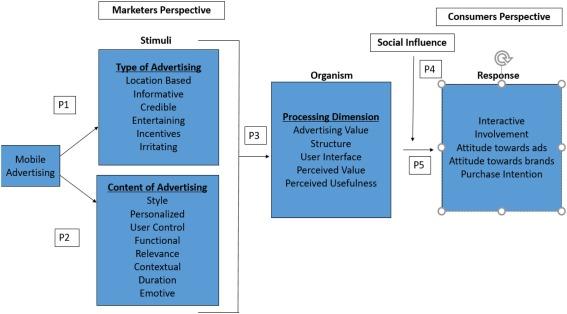Implementation Specialist Roles in Learning Platforms: Key Skills and Career Insights
Are you passionate about education and technology? Seeking an impactful role in teh fast-growing EdTech sector at universities, colleges, or schools? An Implementation specialist role in learning platforms might be the perfect fit for you. This comprehensive guide will help you understand the core responsibilities,essential skills,benefits,and career tips to launch or advance your career as an implementation specialist in educational institutions.
What is an Implementation Specialist in Learning Platforms?
An Implementation Specialist is a crucial figure in educational technology who oversees the successful deployment and adoption of digital learning solutions, such as Learning Management Systems (LMS), digital classrooms, or assessment tools in higher education and K-12 environments. Whether at universities, colleges, or schools, these professionals ensure that EdTech platforms are seamlessly integrated, educators are well-trained, and students benefit from advanced educational tools.
Key Responsibilities of an Implementation Specialist
The role of an Implementation Specialist in education technology is dynamic and multi-faceted. Daily duties vary depending on the association’s size, the complexity of the platform, and the learning environment, but typically include:
- Project Management: Planning, scheduling, and managing the rollout of new learning technologies within academic settings.
- Stakeholder Communication: Acting as a liaison among IT teams, educators, administrators, and EdTech vendors.
- Platform Configuration: Customizing the learning platform to meet institutional requirements and user needs.
- User Training: Delivering onboarding sessions,training workshops,and ongoing support for faculty and staff.
- technical Support: Troubleshooting issues, documenting solutions, and maintaining system integrity post-implementation.
- Feedback Collection: Gathering user feedback, analyzing data, and recommending improvements for better platform adoption.
- Documentation: Creating clear user guides, training manuals, and FAQ resources.
Key Skills Required for Implementation Specialist Roles in Learning Platforms
To thrive as an Implementation Specialist in higher education or school settings, candidates should focus on developing a mix of technical, communication, and organizational skills:
1. Technical proficiency
- Understanding of learning platforms (LMS like Canvas, Blackboard, Moodle, etc.)
- Basic IT troubleshooting: familiarity with software installation, connectivity, and integration issues
- knowledge of data privacy and cybersecurity best practices
- Understanding APIs, SIS (Student Facts systems), and other ecosystem tools is a plus
2. Communication Skills
- Excellent verbal and written communication for delivering training and technical instructions
- Interpersonal abilities to work with educators, students, administrators, and technical teams
- Active listening for understanding and addressing user needs
3. Project Management
- Time management and organizational skills to keep implementation timelines on track
- Experience with tools such as Trello, Asana, or Jira
- Ability to manage multiple projects or school sites concurrently
4. Analytical Thinking
- Problem-solving skills for technical and user adoption challenges
- Data analysis capabilities to assess usage patterns and feedback
- Evaluative thinking to improve processes and recommend enhancements
5. Training and Support Experience
- Experience in developing and delivering effective training materials
- Patience and empathy for working with users of varied technical proficiency
- Follow-up support to ensure ongoing platform adoption and satisfaction
Career Path and advancement Opportunities
Implementation specialist roles in education technology open the doors to diverse advancement opportunities within universities, colleges, and schools. Possible career trajectories include:
- Senior Implementation Consultant with more complex, institution-wide projects
- Product Manager or EdTech Solutions Consultant
- training and Progress Manager for district, college, or university systems
- IT project Manager or LMS Administrator
- Transitioning to EdTech sales engineering or customer success leadership roles
the experience gained as an implementation specialist, especially in education-focused environments, is highly transferable and valued in both public and private sector EdTech companies.
Benefits of Working as an Implementation Specialist in Learning Platforms
- Impact: Directly enhance teaching and learning outcomes through technology adoption.
- Professional Growth: Acquire in-demand IT, project management, and educational technology skills.
- Collaboration: Enjoy a highly collaborative work environment with educators, IT experts, and students.
- Job Security: Demand for education technology roles is projected to grow as institutions continue digital transformation.
- Variety: Work across diverse projects, institutions, and user groups, keeping the role exciting and challenging.
Practical Tips for Landing an Implementation Specialist Role in Education Technology
If you aim to secure an implementation specialist position in learning platforms at a university, college, or school, follow these targeted strategies:
- Gain Relevant Experience:
- Volunteer or work in education technology support, IT helpdesk, or teacher training capacities.
- participate in EdTech internships or projects managing LMS or digital classroom tools.
- Enhance Technical Skills:
- Learn popular learning management systems and their core features.
- Take online courses or certifications in EdTech platforms,project management,or IT fundamentals.
- Highlight Soft Skills:
- Emphasize communication, adaptability, and training experience in your resume and interviews.
- Network:
- Attend education technology events, webinars, and forums to connect with industry insiders.
- Engage with EdTech communities on social media.
- Tailor Your Application:
- Customize your cover letter and resume for each role, using keywords like “implementation specialist,” “learning platform,” and “LMS support.”
- Highlight specific experience working with educational technology in academic settings.
- Prepare for Interviews:
- Be ready to share success stories around tech implementation and support.
- Discuss how you handle change management and user training in education settings.
Conclusion
The rise of educational technology in universities, colleges, and schools makes the role of an Implementation Specialist in learning platforms more vital than ever. By mastering key technical and soft skills, staying current with EdTech trends, and building strong relationships within the education community, you can launch a rewarding and meaningful career that bridges the gap between technology and learning success.If you’re seeking to make a difference and grow your career in education technology,explore the opportunities that implementation specialist roles have to offer—and become a key driver of digital transformation in education.

